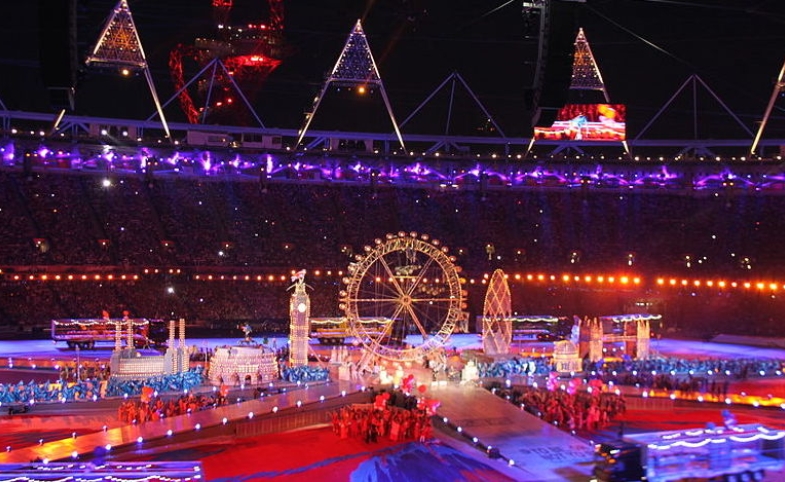A House of Lords committee led by Lord Howell produced a major report on the UK’s ‘soft power’ last month. It’s impressive and comprehensive, but sadly not many will get all the way through the publication. Such is the...
KEEP READINGThe CPD Blog is intended to stimulate dialog among scholars and practitioners from around the world in the public diplomacy sphere. The opinions represented here are the authors' own and do not necessarily reflect CPD's views. For blogger guidelines, click here.

London 2012: Everyone’s a winner
Before the Olympics, if you'd asked me where the UK would rank in Monocle’s annual "Soft Power" Survey this year, I'd have hoped for a podium finish. After the Olympics—even though our national modesty holds me back—I am proud to find us carrying off the Gold. As I've always said, "to know us is to love us." And when the UK has the self-confidence to put its culture on the world's stage, as it has in 2012, there is no country in the world with more to offer.
When I was interviewed by CNN on a grey morning just before the London Olympics, I was asked what I thought might be the legacy of the Olympics given that 'everybody worldwide knows the UK anyway'. I said: refreshing the "shortbread and Beefeater" image of the UK with one that's modern, diverse and about all four countries of the UK, plus doing a job on ourselves—rediscovering our national sense of belief that we absolutely can do what the French call "grands projets", big buildings, great events and huge infrastructure projects.
Everything that happened in the glorious weeks that followed fulfilled my hopes. Danny Boyle's Olympic Opening Ceremony, the stunning summer of sport. But the day I took my little family to the Paralympics stands out. I literally could not believe it. The scale, the build quality, the welcome, the volunteers, the Army, the packed venues, the landscaping—even the McDonalds—it was all so wonderfully well done. In the words of the campaign: the Olympics and Paralympics really were GREAT.
We've taken Olympic "legacy" and the 2012 "call to action" to heart at the British Council.
Monocle may call it "soft power", but there's nothing soft about the economic dividends that sharing culture can bring. Our own 10 Country British Council research shows that sharing English, education, and culture helps build trust for the UK worldwide, and that trust translates into people worldwide wanting to study in the UK, visit, and do business with us for mutual benefit.
We've taken Olympic "legacy" and the 2012 "call to action" to heart at the British Council. We already work in more than 100 countries worldwide to build trust, opportunity and prosperity for the UK through English, education and society programmes, and the Arts. But we are growing through entrepreneurship, not government spending. Three-quarters of the British Council's turnover is now earned by teaching English and helping people get vital qualifications, delivering life-changing education and international development contracts for donors and funders, and in working partnership with great brands like the Premier League, HSBC, Microsoft and more. Core UK public funding now accounts for less than a quarter of our turnover.
Perhaps it's time to recognise that English, education, and culture—along with a sustained commitment to international development—are some of the UK's biggest and best contributions to the world in the 21st century. Here in the UK we should learn to talk about that more, with due humility and just a little national pride, because everyone is a winner when we share.
Visit CPD's Online Library
Explore CPD's vast online database featuring the latest books, articles, speeches and information on international organizations dedicated to public diplomacy.
POPULAR ARTICLES
-
January 29
-
January 20
-
January 28
-
January 2
-
January 8
Join the Conversation
Interested in contributing to the CPD Blog? We welcome your posts. Read our guidelines and find out how you can submit blogs and photo essays >.













